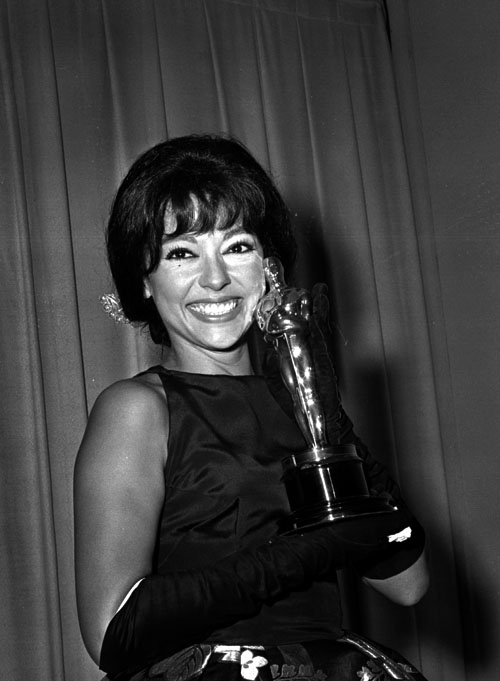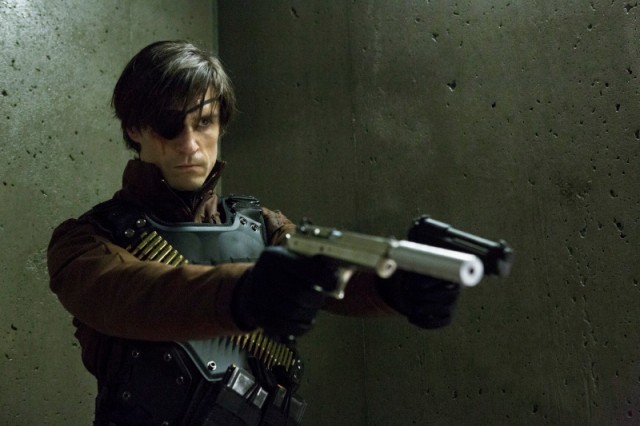Written by Delmer Daves
Directed by Delmer Daves
U.S.A., 1947
As a pickup truck transporting a collection of large sized barrels leaves San Quentin prison, one of its shipments topples over and rolls down a roadside hill. From it sprouts recently convicted convict Vincent Parry who then perilously makes his way to San Francisco where he plans to uncover the truth about his wife’s murder for which he claims to have been wrongfully accused. It is in San Francisco that Vincent luckily makes the acquaintance of one Irene Jansen (Lauren Bacall), a lonesome woman who, through a few degrees of separation, has ties to Vincent and hopes to assist him in his plight, particularly when a common foe, Madge Rapf (Agnes Moorehead) visits Irene, claiming that Vincent is on the loose and will surely find and kill her as well. With so much heat on his tail, a possible way for the unfortunate protagonist to go undetected is by surgically altering his facial features. Once the risky operation is complete, Vincent (Humphrey Bogart) risks his neck (and new face) to set the record straight.
Dark Passage’s title works as an unnervingly apt description of the trials and tribulations its protagonist must fight through in the hope of righting the wrongs done to him. Starting from the ground up, his psychological, mental and even physical stamina are equally tested as the police, a fiery and scornful old flame, and a nosy blackmailer keep mounting the pressure on Vincent’s shoulders. Delmer Daves, filling in both screenwriter and directorial duties, serves up a picture that works for its dramatic heft more so than for the air-tightness of the plot. Make no mistake, the script features a bevy of high points that drive home important dramatic beats, therefore enriching the characters and their interactions, although viewers are asked to suspend a sizeable portion of their disbelief and accept a series of pretty convenient or too obviously dangerous coincidences. One example is the willingness with which Lauren Bacall’s Irene Jansen comes to Vincent’s aid, which is ludicrous…until revealed that she attended his court trial, believed he received a bum rap and noticed similarities between his fate and that of her late father, also wrongfully accused of murdering his wife but then perished when still behind bars. Ah, and she and Madge Rapf, who testified against Vincent, evidently know each other and are currently at odds.
True enough, there is a lot to swallow in order to feel the plight of would-be lovers Vincent and Irene. For some, the coincidental nature of the plot will be too much to take, a perfectly understandable viewpoint when all is said and done. No one would be frowned upon for thinking the picture to be utterly nonsensical. Even so, Dark Passage digs deep into its loopy story to produce an emotionally convincing thriller about the risks an individual is willing to bargain against to regain his or her sense of decency. Perhaps the film works harder than necessary to hit its high marks, but hit them it does nonetheless. The film’s centerpiece alone is a strange beast in of itself, to say nothing of the approach director Delmer Daves opts for in the lead up to said centrepiece. A positively head-scratching conversation with a cab driver one night leads a very desperate Vincent to visit a recluse plastic surgeon (Housely Stevenson), a gifted craftsman who goes to work on Vincent’s face for hours. The protagonist then spends the next week resting at Irene’s condo home with bandages wrapped around his noggin like a mummy, unable to speak and eating only liquids through a glass straw. Several scenes go by depicting Irene serving and feeding her guest as she extrapolates more background information to help strategize what his next move might be. As far as momentum is concerned Dark Passage does indeed slow down a bit during this stretch, yet the downtime serves to build the understanding Irene and Vincent have for one another.
If this sequence was not strange enough, consider that for the entire first third of the movie the camera never directly reveals Vincent Parry’s face to the viewer. Bogart lends his voice to the character, but almost every instance where Vincent plays a part in a scene is either from his subjective point of view or, as in the case of the aforementioned shadowy, fateful cab ride, his face is immersed in darkness. Avid noir fans may recall Robert Montgomery’s Lake in the Lake, also from 1947 (although released in January as opposed to September as in the case of Dark Passage) in which the entire film was depicted from the protagonist’s personal point of view. Whether or not Delmer Daves is guilty of plagiarism is up for debate, but more importantly the effect is just as if not more successful than in Montgomery’s picture. The camerawork is surprisingly dynamic as Vincent finds himself in a great many physically demanding situations for which careful, believable pans are required. If there is one nitpick preventing from this sequence from being great it would have to be the filmmaker’s decision to reveal what Vincent originally resembled via photographs in the newspaper. Granted, it doesn’t sound like much but it does produce far too many questions, such as why reveal the character’s look at all if the rest of the first hour is shot from his field of vision anyhow? Conversely, if the director wanted his audience to know what Vincent looked like, why not cast the man whose photograph serves as the protagonist’s appearance and dub him with Bogart’s voice work?
In any case, the decision to acquiesce to the plastic surgery speaks to Vincent’s desperation to win the day. So dedicated is he to clearing his name that he is willing to have his own face done away with and given an entirely new one. A face represents a person’s most distinguishable piece of identity. To change that is to change a major aspect of what makes them who they are. The operation can be said to be Vincent’s first major step towards a new life, a new beginning. Closing the chapter on one’s past never took on so lugubrious a form, but such is the direction the hero’s precarious predicament takes him. The best part is that, in true cynical noir fashion, his impressive attempt to continue his mission covertly practically blows in his face, no pun intended. Even with a new visage Vincent quickly finds himself in hot water with the police, sending him on the run yet again. Even the climax itself proves decidedly anti-climactic, the antagonists being dealt with in ways that once again temporarily hurt Vincent rather than improve his position. No matter how this stalwart of determination strives to makes things better chance always has something else in store.
If Dark Passage proves anything, apart from Lauren Bacall and Humphrey Bogart being consummate pros, it’s that even the silliest of premises can work provided the story strikes enough dramatic high points through emotionally genuine character relations. The film’s plot is mostly nonsense but the story is really quite strong, a nuance that can make all the difference in the world.
-Edgar Chaput








